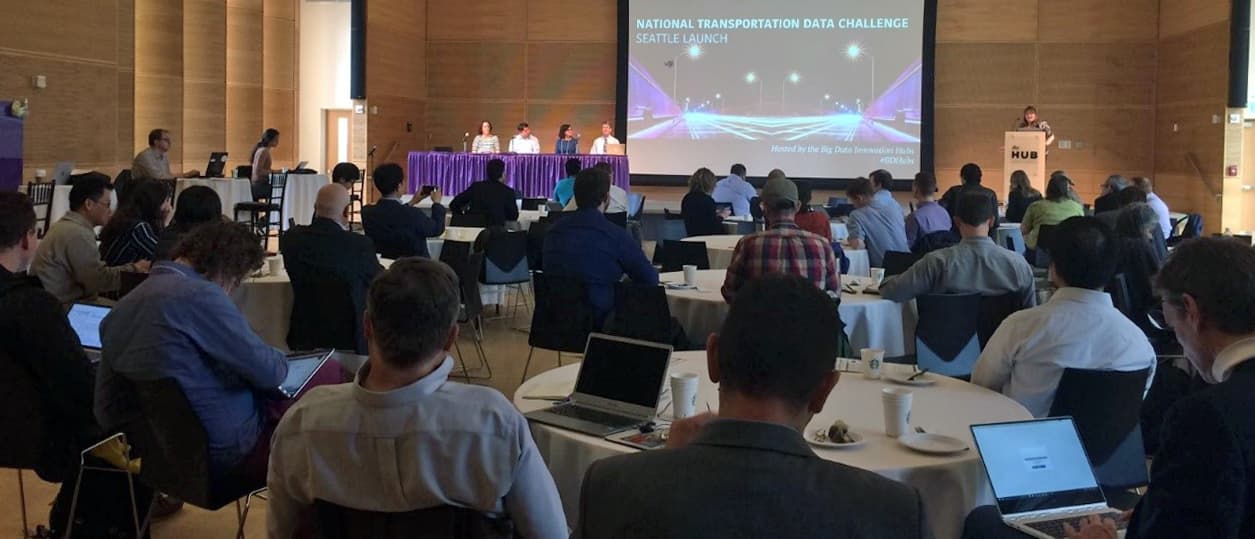Microsoft's Role in Advancing Transportation Data Science

Transportation Data Science at Microsoft
This post details Microsoft's involvement and contributions to the National Transportation Data Challenge, launched by the National Science Foundation (NSF)-supported Big Data Innovation Hubs in May 2017. The initiative aims to leverage data science to improve transportation systems across the United States.
Microsoft's Engagement and Contributions
Microsoft's participation in the challenge builds on previous work in public safety and metro data science. Key collaborations include:
- Civic Technology Engagement (CTE) with DataKind, Vision Zero, and City Departments: Microsoft's CTE group, part of the Corporate, External and Legal Affairs (CELA) team, partnered with organizations like DataKind, Vision Zero initiatives in Seattle and New York City, and city departments in New Orleans. This collaboration facilitated an ecosystem that helps cities prioritize traffic safety issues and allocate resources effectively.
- Interactive Power BI Dashboard: Adam Hecktman and Kevin Wei from the CELA CTE team developed an interactive Power BI dashboard visualizing over 300 million bike rides in Chicago, providing insights into urban mobility patterns.
Microsoft Research's Role
Microsoft Research is actively contributing through initiatives like:
- Video Analytics Towards Vision Zero: This project, represented by Franz Loewenherz, involves the public in analyzing traffic camera footage to train computers to identify and track various modes of transportation (e.g., wheelchairs, bikes) at intersections. The goal is to detect near-collision events and improve traffic safety. Key researchers leading this effort are Victor Bahl and Ganesh Ananthnarayanan.
Cloud and Machine Learning Applications
Several Microsoft teams showcased the application of cloud technologies and machine learning in transportation data science:
- Predictive Model for Incident Severity: Wee Hyong Tok from the Cloud AI Platform group developed an Azure Machine Learning model using National Highway Traffic Safety Administration (NHTSA) Fatality Analysis Reporting System (FARS) data. This model predicts incident severity with 68% accuracy, serving as a baseline for challenge participants.
- Power BI Visualization of FARS Data: Patrick Baumgartner and the Power BI team created an interactive visualization of the FARS dataset, enabling deeper analysis of correlations, points of impact, and seating positions in traffic incidents.
Global Reach and Future Outlook
Microsoft's efforts in transportation data science extend globally, with the UK team engaging with the Department of Transport to foster innovation through events and hackathons. The Microsoft Connected Vehicle Platform is also highlighted as a key initiative, recognizing the digital transformation in the automotive industry and investing in scalable automotive solutions in partnership with major car manufacturers.
Related Initiatives and Resources
The post also references related Microsoft Research initiatives and resources:
- Microsoft Research Forum: An on-demand event featuring discussions on multimodal AI, AI evaluation benchmarks, and new computer architectures for AI.
- Learning Resources: Links to blog posts about Microsoft's $3M cloud computing credit contribution to NSF's Big Data Regional Innovation Hubs, a one-year collaboration review, and resources for the National Science Foundation Big Data Regional Innovation Hubs and the West Big Data Innovation Hub.
- Azure for Research: Information on leveraging Azure for research purposes.
- Related Academic Programs: Data Science for Research and Microsoft Azure for Research.
- Related Labs: Microsoft Research Lab - Redmond.
The post concludes by encouraging engagement with the transportation data science community as the National Transportation Data Challenge progresses.
Key Takeaways:
- Microsoft is actively involved in advancing transportation data science through collaborations and challenges.
- Cloud computing and AI/ML are crucial enablers for analyzing complex transportation data.
- Projects focus on improving traffic safety, urban mobility, and predictive analytics.
- Microsoft Research plays a significant role in developing innovative solutions in this domain.
Original article available at: https://www.microsoft.com/en-us/research/blog/transportation-data-science-microsoft/